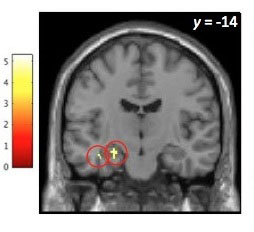
A recent publication from Paige, Ksander, Johndro, & Gutchess (Cortex, 2017) of the Aging, Culture, and Cognition Lab at Brandeis University has shed light on how culture affects brain activation when encoding information into memory. Prior work has suggested that culture influences how people perceive the world, including how much perceptual detail (e.g., size, shape, color, etc.) is remembered. It may not be surprising that culture shapes customs or even social interactions, but evidence also suggests that it shapes cognition. Because encoding details into memory necessitates the engagement of additional cognitive resources, comparing across cultures on the specificity of memory offers a glimpse into which processes and types of information are considered important across cultural groups.
Participants who originated from America or East Asia studied photos of everyday items in a magnetic resonance imaging (MRI) scanner and 48 hours later completed a surprise recognition test. The test consisted of same (i.e., previously seen in the scanner), similar (i.e., same name, different features; for example, a coffee mug that is a different shape or color than what the participant saw at encoding), or new photos (i.e., items not previously seen in the scanner) and participants were instructed to respond “same,” “similar,” or “new.”
Unlike other studies, culture did not disproportionately influence behavioral memory performance for specific information. However, East Asians showed greater activation in the left fusiform and left hippocampus relative to Americans for specific (items correctly recognized as same) versus general memory (items correctly recognized as similar). Additional follow-up analyses confirmed this cultural pattern was not driven by differential familiarity with the items across cultures. One possible explanation for this finding is cultural differences in prioritization of high (e.g., fine details, local information) versus low spatial information (e.g., coarser, global information). In the present study, increased activation in the left medial temporal regions for East Asians may be reflective of additional processes needed to encode specific details into memory, reflecting the greater demands of local, high spatial frequency processing. Current work in the lab is addressing this possibility.
Past work has failed to consider how cross-cultural differences can occur at both the behavioral and neural level. The present findings remedy that, suggesting that culture should be considered an individual difference that influences memory specificity and its underlying neural processes.
Paige, L. E., Ksander, J. C., Johndro, H. A., & Gutchess, A. H. (2017). Cross-cultural differences in the neural correlates of specific and general recognition. Cortex, 91, 250-261.
